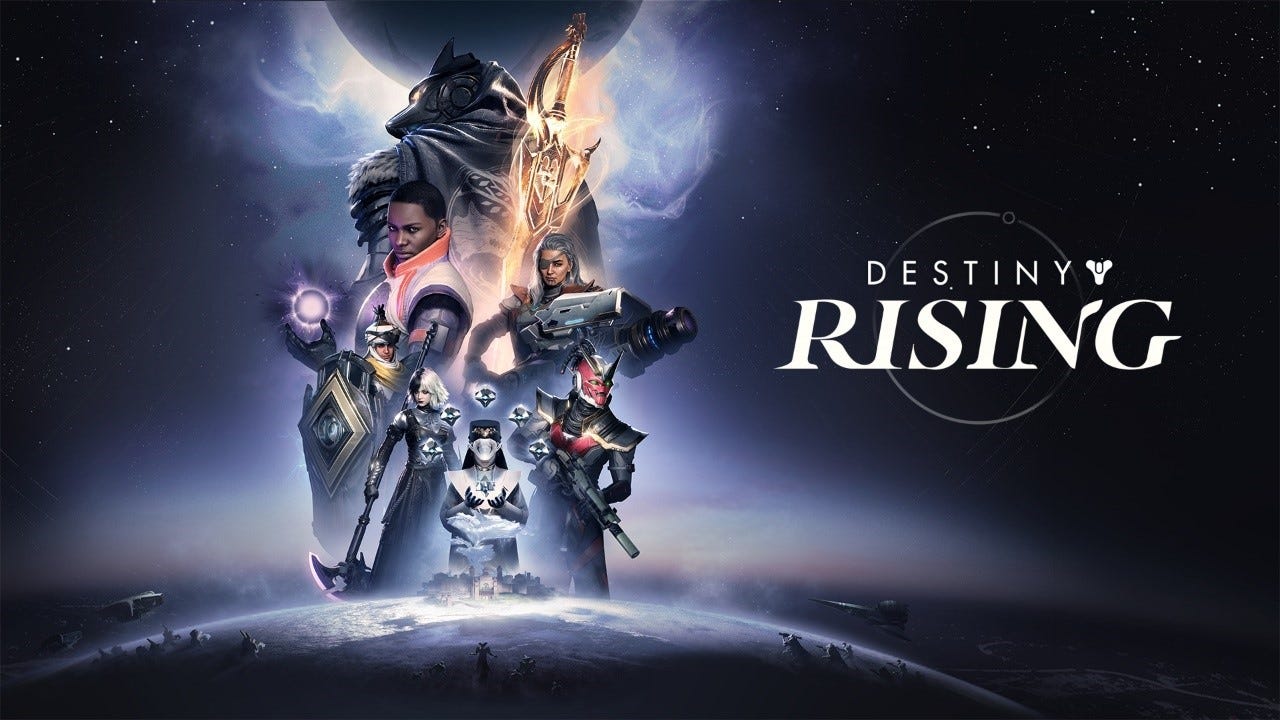Bungie's migration to mobile indicates the destiny of their studio: tethered to another
Ease in development nets guaranteed revenue, if at the cost of consolidation.
To paraphrase the immortal, if not infamous words of Blizzard: do you guardians not have phones? Destiny: Rising, the first fresh instalment in the Destiny canon since 2017, is a parallel representation of the series’ trappings: a free-to-play hero shooter bearing a surprising varnish of a home console title. Developed by NetEase, known for their vampiric measures of microtransaction and ownership of the industry’s most toxic enterprise, the game promises to democratise Destiny’s vast scope for those who reserve a mobile phone with a dedicated cooling system. Evidently, the announcement of this title coincides neatly with reports that their next major title, Marathon, has begun a slate of external playtests. Bungie could use a cachet of goodwill; their name has become synonymous with dysfunction and disintegration. Consequently, though Marathon’s emergence from its chrysalis may have served as a momentary salve to an existential wound, Destiny: Rising hopes to become a spiritual panacea - hardware notwithstanding, the Destiny brand can become a fixture of pockets the world over.
* of no relation to Metal Gear’s own rising, nor its subsequent revengeance.
In short, NetEase are far greater than a development team. The organisation bore an astounding $14.87 billion USD in revenue in 2023 alone, despite losing a crucial licence in Activision-Blizzard. You may be familiar with their ident from the forthcoming Marvel Rivals: a brazen facsimile of Overwatch, lightly differentiated through a third-person perspective and web-swinging in place of roadhogging. Granted, replicating the dynamic of this generation’s erstwhile most influential shooter via the aesthetics of, once again, its formerly monolithic entertainment franchise is simply savvy business. Nevertheless, one can forgive this exercise in cynicism upon learning is in eminently in service of proving to the Chinese government that gaming is a worthwhile pursuit, rather than a lithe folly. Oh, that is another sailent point regarding this organisation: as an appendix of mainland China, they are beholden to state regulation and interrogation. Primarily, the CCP are focused on reducing time spent within digital entertainment, eliminating avenues for transmogrifying in-game assets into real money, along with a reduction in the efficacy of daily log-in bonuses.
In the grand United States of America, however, the market is as free as the Gibus on your Pyro! Monopolies fail not through antitrust legislation, rather internal ineptitude. Thus, courting the company of an institution beholden to strict external estimation is risky - unless your brand desperately needs to consolidate its hold on a niche it once had to itself. Regarding the design of Rising, NetEase have streamlined Destiny’s merry band of lootseekers to surfeit particular archetypes: personalities affirmed, locomotion settled, and cosmetics presumably priced to a rather taxing degree. One may choose between a third-or-first-person perspective, maneouvered through a controller or touchscreen engagement. Perhaps you are concerned about the extent of gameplay you can experience without spending your hard-earned - fear not! A “good part of the main campaign” will be accessible, alongside “at least one map for all game modes”. Generous, indeed.
Marvel Rivals’ interpretation of The Punisher, protected by the grand illumination of unresolved trauma and rage.
One could read the ostensibly episodic structure of the game to serve two masters: both Bungie’s desire for a sustained stream of revenue from a dedicated playerbase, and the Chinese government’s demand to limit consecutive time on play. Or, rather succintly, it is an interpretation of the model employed by Bungie for its home console kin. Regardless, Destiny: Rising’s ambition is to replicate the social thrill of the original title in a decentralised manner, turning a highly terrestrial experience into a moveable feast. Prominently, at the beginning of the announcement trailer, the game is said to have been licenced by Bungie; NetEase are handling production and distribution. In spite of serving soundly under Sony’s purview, Bungie could not handle a mobile title of this grandeur on their own; neither party has the apparatus, nor the repertoire to run the gamut of mobile gaming. There is a particular logic to home consoles, albeit one gradually eroding against competition. NetEase know how to appeal to one billion smartphones; Sony prioritise 62 million chunky PlayStation 5s.
Ultimately, this mercenary evolution in Bungie’s philosophy is a direct reflection of how profoundly the market has evolved since Destiny’s debut in 2014. The PlayStation 3 reserved 256mb of RAM; a $152 smartphone today has 6gb. Quit scrolling reels and get to defending the universe!



